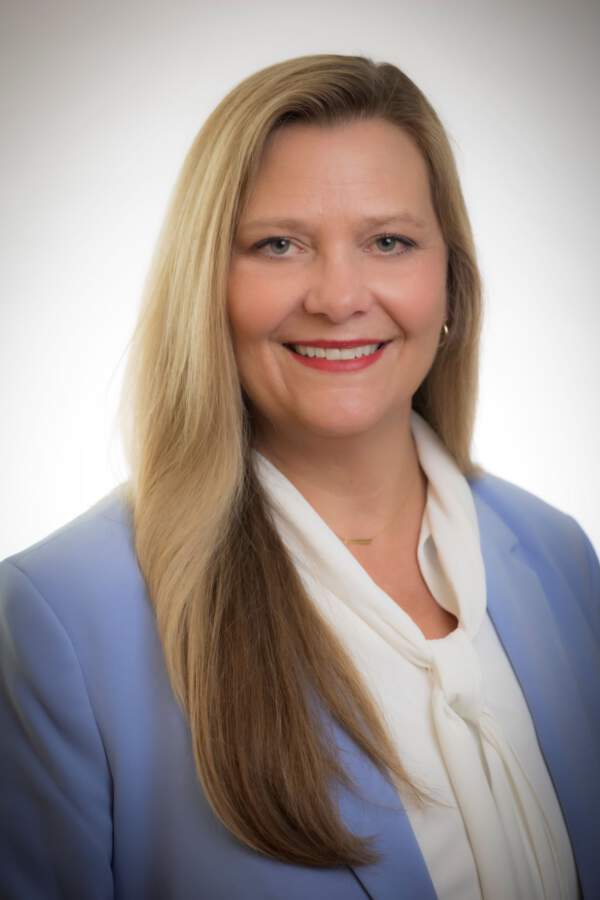 The Miami Conservancy District (MCD) announced the selection of MaryLynn Lodor as its new general manager. She is currently chief operating officer/deputy director of the Metropolitan Sewer District of Greater Cincinnati, a Cincinnati and Hamilton County metro-area wastewater utility that provides sewer service to about 230,000 households and businesses.
The Miami Conservancy District (MCD) announced the selection of MaryLynn Lodor as its new general manager. She is currently chief operating officer/deputy director of the Metropolitan Sewer District of Greater Cincinnati, a Cincinnati and Hamilton County metro-area wastewater utility that provides sewer service to about 230,000 households and businesses.
Ms. Lodor’s primary responsibilities will include overseeing MCD’s operations, including strategic planning and implementation, staff leadership, and fiscal management. MCD is a political subdivision under State of Ohio law, with the mission to protect lives, property and economic vitality within the Great Miami River Watershed through an integrated system that provides unfailing flood protection, preserves water resources, and promotes enjoyment of our waterways. MCD serves nine counties and its 2021 operating revenues are approximately $10.6 million.
When her tenure begins on May 4, Ms. Lodor will succeed Janet M. Bly. Ms. Bly is retiring after serving MCD as its general manager since 2002.
“The Miami Conservancy District is an essential contributor to our region’s ability to thrive,” explained Beth Whelley, Board President of MCD and executive vice president at Fahlgren Mortine. “MaryLynn will bring her relevant experience, respect for the MCD legacy, and enthusiasm for our future to the benefit of all of our constituents.”
Discussing her motivation to lead MCD’s ongoing commitment to the Great Miami River watershed, Ms. Lodor says, “I developed an appreciation for water and natural resources at an early age, growing up on a small farm in Upstate New York. While in college, I was drawn to the nexus between the environment and thriving local economies. I am thrilled to be joining MCD, an organization that has a rich history, and I am looking forward to leading it into the future — working with Ohio’s Great Miami River watershed communities to improve, protect and manage its water resources for the benefit of the regional economy and future generations.”
During her 12-year employment with Cincinnati’s Metropolitan Sewer District, Ms. Lodor advanced from environmental programs manager to chief operating officer. She oversaw the development and implementation of innovative watershed-based solutions, operation of numerous water management facilities, developed strategic plans based on the needs of internal and external partners, and reduced the risk of damage to infrastructure and personal property caused by extreme storm events. She’s provided leadership in several regional organizations through her career including the Confluence Water Technology Cluster, Hamilton to New Baltimore Groundwater Consortium, Mill Creek Watershed Council of Communities, the Ohio River Sanitation Commission, Fernald Advisory Committee, Green Umbrella, Groundwork Cincinnati, and the Natural Resource Assistance Council for the Southwest Ohio Public Works Integrating Committee.
She was recognized twice by the National Association of Clean Water Agencies with public service awards and received an Individual Professional Excellence Award from the Ohio Stormwater Association.
Prior to her employment with the Metropolitan Sewer District, Ms. Lodor rose to the role of environmental division head with the Butler County Water and Sewer Department where she worked on groundwater protection, the Great Miami River Water Quality Credit Trading Program, and other efforts associated with water management. She has also served communities in New York State, focusing on water resources, regulatory compliance, and economic development.
Ms. Lodor holds a master of science in environmental management and policy from the Rensselaer Polytechnic Institute in Troy, New York and a bachelor of science in business administration with a concentration in environmental studies from the State University of New York at Oswego.
 Founded in 1915, MCD was one of the first conservancy districts established after legislation passed into Ohio law, enabling the creation of multi-jurisdictional, watershed-based organizations to solve flooding problems, to conserve and develop water supplies, and to treat wastewater. The law allows using conservancy district lands for recreation. MCD has a three-member Board of Directors governed by a Court of a Common Pleas judge from each of the nine counties it serves. MCD has more than a dozen maintenance facilities in as many communities along the Great Miami River and its tributaries. Its administrative office is in downtown Dayton, Ohio.
Founded in 1915, MCD was one of the first conservancy districts established after legislation passed into Ohio law, enabling the creation of multi-jurisdictional, watershed-based organizations to solve flooding problems, to conserve and develop water supplies, and to treat wastewater. The law allows using conservancy district lands for recreation. MCD has a three-member Board of Directors governed by a Court of a Common Pleas judge from each of the nine counties it serves. MCD has more than a dozen maintenance facilities in as many communities along the Great Miami River and its tributaries. Its administrative office is in downtown Dayton, Ohio.